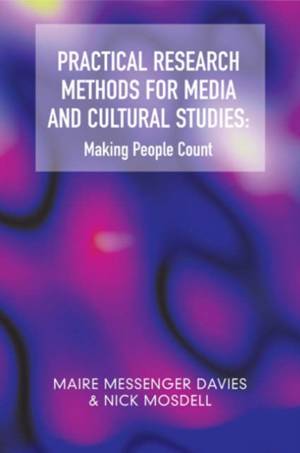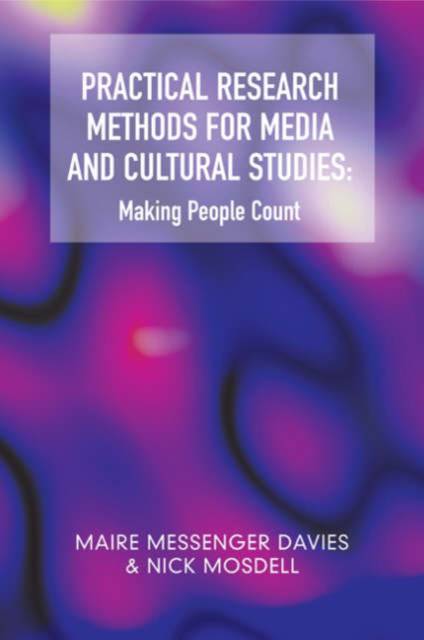
En raison d'une grêve chez bpost, votre commande pourrait être retardée. Vous avez besoin d’un livre rapidement ? Nos magasins vous accueillent à bras ouverts !
- Retrait gratuit dans votre magasin Club
- 7.000.000 titres dans notre catalogue
- Payer en toute sécurité
- Toujours un magasin près de chez vous
En raison de la grêve chez bpost, votre commande pourrait être retardée. Vous avez besoin d’un livre rapidement ? Nos magasins vous accueillent à bras ouverts !
- Retrait gratuit dans votre magasin Club
- 7.000.0000 titres dans notre catalogue
- Payer en toute sécurité
- Toujours un magasin près de chez vous
Practical Research Methods for Media and Cultural Studies
Making People Count
Maire Messenger Davies, Nick Mosdell
Livre relié | Anglais
140,95 €
+ 281 points
Format
Description
Many very intelligent people don't like dealing with numbers. Similarly, many gifted scientists are not especially interested in studying people and their cultural behaviour. In this book, we argue that being interested in people and their cultures, and helping students and others to use numbers to pursue these interests, are not mutually exclusive. Research methods are becoming an increasingly important requirement for students of all kinds. But many students, particularly those in the humanities, struggle with concepts drawn from the social sciences and find quantitative and statistical information inaccessible and daunting. Nonetheless, such concepts are found in nearly all areas of society, from market research and opinion polls to psychological studies of human behaviour. This book aims to provide a simple guide to the process of conducting research in the humanities, with special reference to media and culture, from the planning stage, through the data gathering, to the analysis and interpretation of results: 'planning it', 'doing it' and 'understanding it'. The book aims to show how students' own choice of research topic can be refined into a manageable research question and how the most appropriate methodologies can be applied. Each section draws on actual examples from research that the authors and their students have conducted. Topics covered include: choosing a research question and method; instrument design and pilot data; practical procedures; research with children; looking at statistics; and interpretation of results.Features: *Based on the authors' practical experience as researchers and teachers and is thus accessible, practical and 'how to'.*Includes students' own work as examples.*Bridges the 'divide' between social science and humanities research methods and will therefore appeal to a broad range of students and teachers.
Spécifications
Parties prenantes
- Auteur(s) :
- Editeur:
Contenu
- Nombre de pages :
- 208
- Langue:
- Anglais
Caractéristiques
- EAN:
- 9780748621842
- Date de parution :
- 18-07-06
- Format:
- Livre relié
- Format numérique:
- Genaaid
- Dimensions :
- 138 mm x 216 mm
- Poids :
- 358 g

Les avis
Nous publions uniquement les avis qui respectent les conditions requises. Consultez nos conditions pour les avis.






